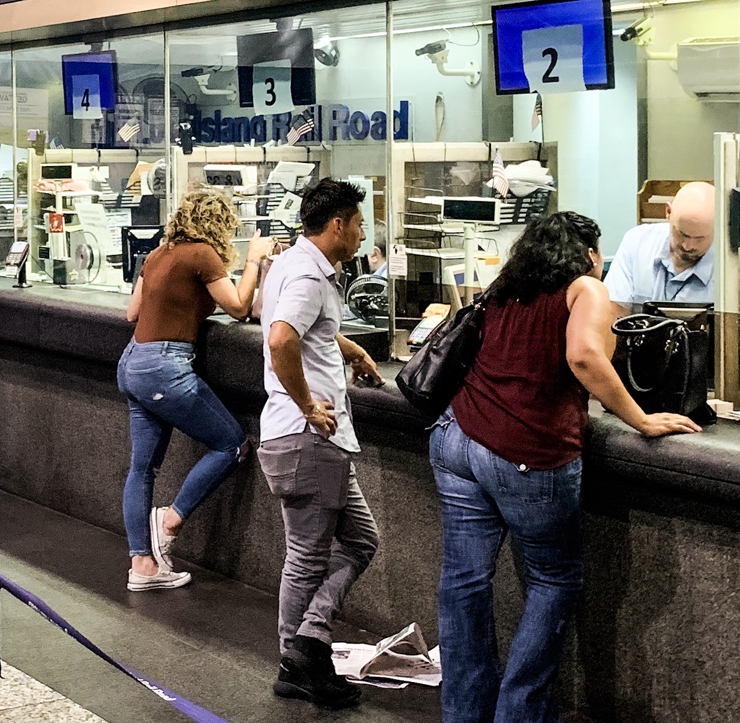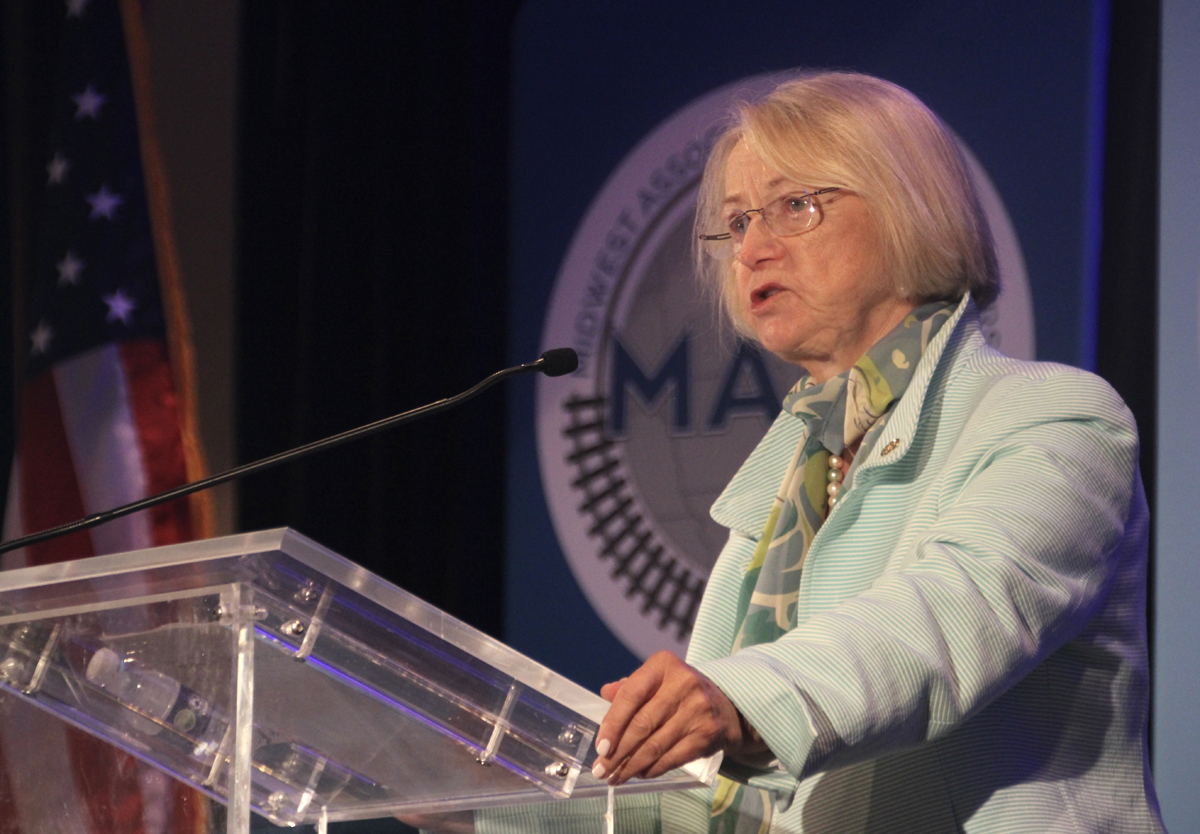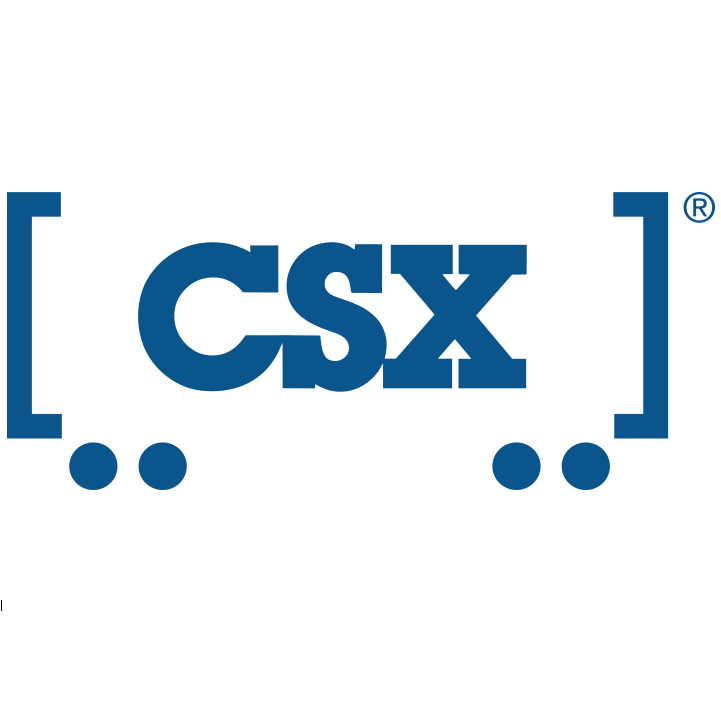NEW YORK — The Long Island Rail Road will cut the number of stations with ticket agents as of Jan. 1, 2020, while also ending cash ticket sales aboard trains, the blog LIRR Today reported Monday.
The changes are part of the Metropolitan Transportation Authority’s comprehensive 2020 Preliminary Budget plan released in July. They are part of a three-year budget plan to address substantial expected deficits.
The cuts will leave less than 20 stations with ticket agents; as recently as 1996, there were 100 such locations. The plan is to eliminate seven ticket offices, of which five are currently part-time and two full-time; the stations involved have not been specified. The proposal also includes plans to reduce weekend hours at two additional stations, the number of agents on duty at Jamaica station, and use of a minimum number of agents at the Moynihan Station in New York, slated to open in 2021.
Crews will also no longer accept cash payments on board LIRR trains as of Jan. 1. Riders are increasingly using less cash to purchase tickets, opting to pay digitally through electronic transactions. Onboard payment will only be by electronic tickets, credit card, and debit card. Cash payment will remain an option at ticket windows or station vending machines.
The new policy will reduce back-office and ticket-remittance personnel, which will result in the closing of three additional offices. Staff changes will come through attrition or assignment to the Moynihan Station when it opens.
The moves, expected to save over $1.5 million in personnel and office costs, will be voted on along with the rest of the 2020 budget at the MTA’s December 2019 board meeting.















So, the MTA will no longer accept good old US money, even though any and everybody is supposed to. I always thought that the MTA was above the law. This proves it along with not completely providing accessibility for disabled people. I also wonder when was the last time the MTA rode the jails that are supposed to be elevators? They STINK!
Some 30% of the US population doesn’t have a credit card. Higher rate among millennials.
Some cities are now mandating cash acceptance at all businesses.
On a personal note, I have had more credit card denials (at point of sale) as well as cards closed by the bank for fraud in the past five years than the previous decades. Very difficult to get by without a credit card while waiting the replacement…
Lastly, a phone based electronic payment doesn’t work if the battery is dead.
Whatever happened to the line “In god we trust”, all others pay cash.
Now you can’t pay cash anymore(at cashless locations).??
Mister McGuire:
Read the disclaimers carefully. Do not consider anything I write to be accurate, timely, or trustworthy. I am not your attorney. For accurate, timely and trustworthy advice, consult a licenced legal practitioner in your jurisdiction.
The above comments are generic in nature and do not form the basis for an attorney/client relationship. They do not constitute legal advice. I am not your attorney. Find your own damn shyster.
Thank you Anna Harding for sorting this out. Until I hear otherwise I will consider your advice to be accurate. I will also inform the other two lawyers who didn’t know the answer of what you said. Of course, if I am able to get my going rate of $300 per hour from them I will share it with you, just don’t hold your breath.
The following is a personal opinion only and is not to be relied upon for any purpose whatsoever. It is not legal advice. For correct and timely legal advice consult a licenced legal practitioner in your jurisdiction.
In the US cash may be tendered for a debt. A debt is defined as an obligation already being owed. If the transaction is pay-in-advance, no debt exists and cash may be refused. If the transaction is pay-after-consumption, a debt exists and cash must be accepted. That is the blackletter law.
But beware the blackletter law. It is all about how the law is interpreted by the court, and of course how the law is interpreted in the heat of the moment.
Under the blackletter law, if you eat at a no-cash restaurant and then attempt to settle the bill with cash and nothing else you may be within the law, but that cuts no ice if the proprietor calls the police and has you arrested for defrauding an innkeeper (such incidents have occurred). You might very likely (and it has happened) end up in jail while it is all being sorted out. While it is unlikely you will be convicted, as the saying goes “You can beat the rap but you can’t beat the ride.”.
The above comments are generic in nature and do not form the basis for an attorney/client relationship. They do not constitute legal advice. I am not your attorney. Find your own damn mouthpiece.
Perhaps the main cash issue is “shrinkage” or other forms of transaction abuse. Many years ago on a NE Regional from BWI to Wash. Union, I bought a ticket onboard with a $50 bill. The conductor made change for a $20 and when caught red-handed, reddened slightly while coughing up the rest of the dough.
ALL – The issue of cashless has come up before on this forum. I don’t know the law as it stands today, only what I was told in school which was six decades ago, that US Money is (or at the time was) legal tender for all transacations public or private.
Last month I lost an Amtrak ticket, didn’t know that until the train had left the station, spent half the trip on the telephone getting an e-ticket. What if I didn’t have a smart phone? (A few weeks prior, I didn’t have a smart phone.) I suspect the train crew would have just given me the ride and not said anything.
Ms. Harding, I did that and neither of the two I spoke to knew the answer. You have given the best answer so far. I wasn’t really looking for legal advice but rather an answer which I now have. Thank you.
Brightline/Virgin Trains do nothing in cash. I didn’t know that, even after several rides, because I offered plastic. There is zero loss in collections. Don’t most of us have debit cards now? Besides, there’s much less chance of a train robbery.
Regarding cash payments, the last plane trip I took the flight attendant could not accept cash for the purchase of cocktails and beers.
It only says cash will not be accepted on board trains. Machines will continue to accept cash, I’m sure.
Is it legal for the LIRR to not accept cash as a form of payment? I recently observed this in a motel where I stayed in Brunswick, ME. On their website and again on the counter at check-in there was a sign that said “Cash is not accepted at this establishment.” Yet the note on my cash says that it is “Legal tender for all debts public and private”. If one rides the train they owe a debt to the LIRR for that transportation. They should be able to pay that debt in the legal currency of the country. Company policy might be that they don’t accept credit or debit cards or personal checks etc. But, these forms of payment don’t seem have legal protection. I have asked this question of two lawyers but neither were able to provide an answer. I’m tempted to push the matter and see what happens. In this instance I might end up on the ballast in the middle of nowhere.
Last time I paid attention at North Station in Boston the ticket agents seemed to have gone away, replaced by vending machines.